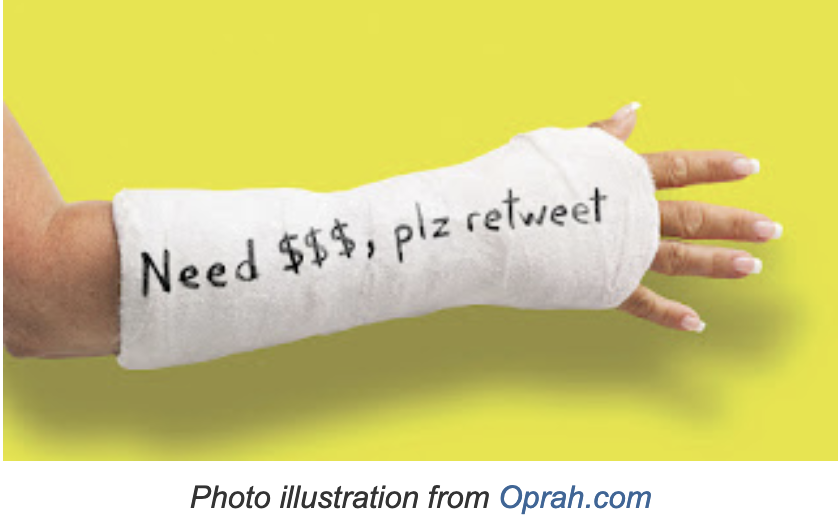Resorting to crowdfunding to pay medical bills has become so routine, in some cases health professionals recommend it

Kentucky Health News
Crowdfunding started as a way to finance ideas and, as a founder of GoFundMe put it, “life’s important moments” such as honeymoons. But now the site “has become a go-to for patients trying to escape medical-billing nightmares,” Elizabeth Rosenthal reports in The Atlantic.
“One study found that, in 2020, the number of U.S. campaigns related to medical causes—about 200,000—was 25 times higher than the number of such campaigns on the site in 2011. More than 500 campaigns are currently dedicated to asking for financial help for treating people, mostly kids, with spinal muscular atrophy, a neurodegenerative genetic condition.” Medical causes also dominate the sites YouCaring and Generosity by Indiegogo, Oprah.com reports.
Rosenthal, a physician turned health-care journalist, reports that crowdfunding is being integrated into the health-care system: “Resorting to GoFundMe when faced with bills has become so accepted that in some cases, patient advocates and hospital financial-aid officers recommend crowdfunding as an alternative to being sent to collections. . . . Ari Romio, a spokesperson for the company, said that ‘medical expenses’ is the most common category of fundraiser it hosts. But she declined to say what proportion of campaigns are medically related, because people starting a campaign self-select the purpose of the fundraiser. They might choose the family or travel category, she said, if a child needs to go to a different state for treatment.”
Crowdfunding may sound like a great boon to people whose health insurance is inadequate, but Rosenthal reports that it doesn’t necessarily help the working poor: “In many respects, research shows, GoFundMe tends to perpetuate socioeconomic disparities that already affect medical bills and debt. If you are famous or part of a circle of friends who have money, your crowdfunding campaign is much more likely to succeed than if you are middle-class or poor.”
And it is far from a panacea, Rosenthal reports: “Most campaigns generate only a small fraction of the money owed. Almost all of the medical-expense campaigns in the U.S. fell short of their goal, and some raised little or no money, a 2017 study from the University of Washington found. The average campaign made it to just about 40 percent of the target amount, and there is evidence that yields—measured as a percent of their target—have gotten worse over time.”
Kentucky Health News is an independent news service of the Institute for Rural Journalism and Community Issues, based in the School of Journalism and Media at the University of Kentucky, with support from the Foundation for a Healthy Kentucky.
Donate to Kentucky Health News here.
Recommended Posts

Kamala Harris needs a VP candidate. Could a governor fit the bill?
Fri, July 26, 2024
After cyber-attack on Jefferson County Clerk, Fayette counterpart discusses precautions
Fri, July 26, 2024
An eastern Kentucky animal shelter is swelling this summer
Fri, July 26, 2024